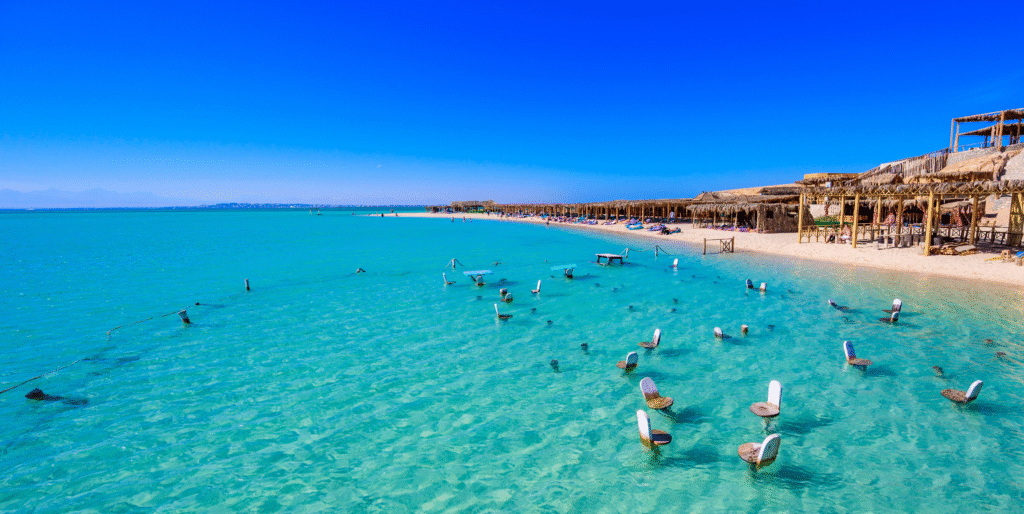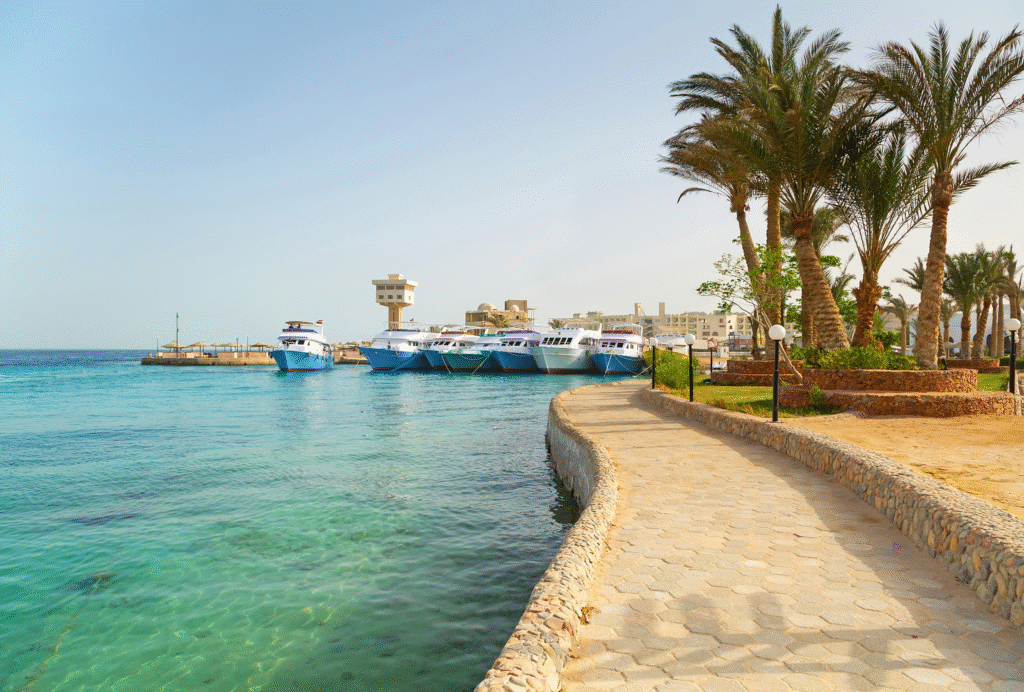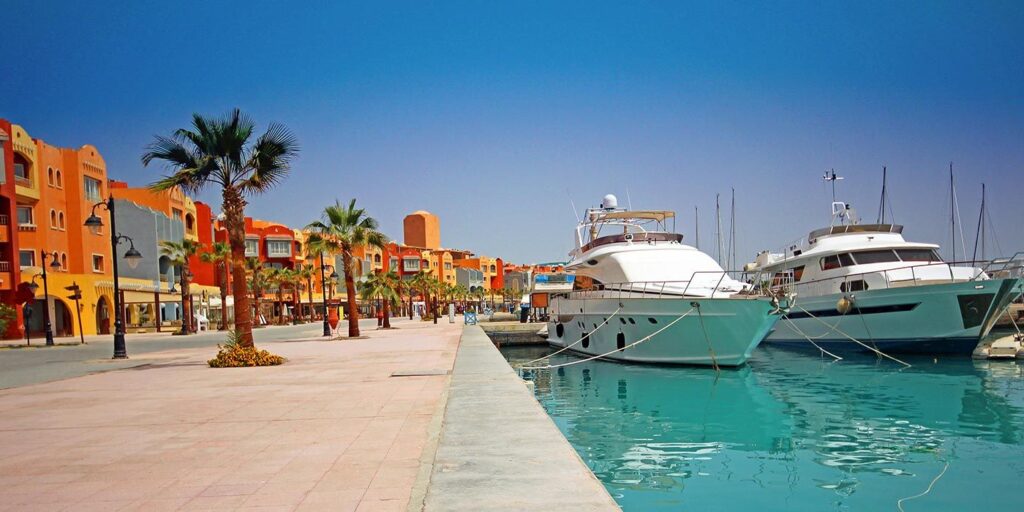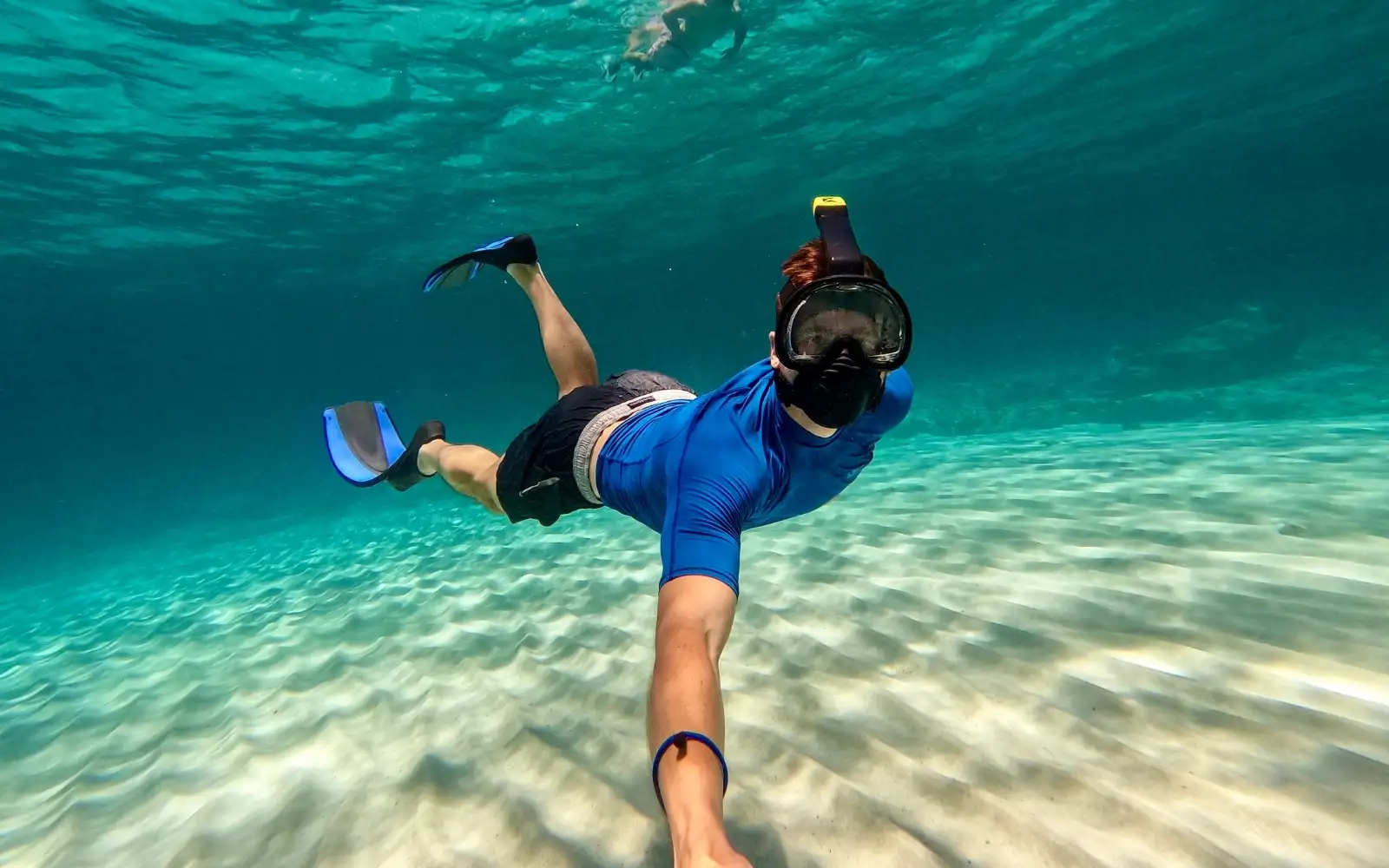
Hurghada, located on Egypt’s Red Sea coast, is one of the most popular travel destinations in the Middle East and North Africa. Known for its year-round sunshine, stunning coral reefs, golden beaches, and a wide variety of excursions, Hurghada attracts travelers from around the world. However, the experience of a trip can be very different depending on the time of year you choose to visit.
This comprehensive guide explores the best time to visit Hurghada, with detailed insights on Red Sea climate, seasonal activities, water temperatures, and practical travel tips. If you are planning Hurghada excursions—whether it’s a desert safari, snorkeling adventure, or a day trip to Luxor or Cairo—understanding the local weather will help you make the most of your holiday.
Overview: The Climate of Hurghada and the Red Sea

Hurghada has a subtropical desert climate, which means long, hot summers and mild, short winters. Rainfall is very rare, making it one of the driest places in the world. Sunshine dominates the year, with an average of 9–11 hours of daylight daily.
The Red Sea climate is particularly special because the water temperature remains relatively warm year-round. Even in winter, it is pleasant enough for swimming, snorkeling, and diving.
- Summer (June–August): Hot and dry, with average daytime temperatures between 32–38°C (90–100°F).
- Autumn (September–November): Warm and pleasant, ranging from 25–32°C (77–90°F).
- Winter (December–February): Mild, with daytime temperatures between 18–24°C (64–75°F).
- Spring (March–May): Comfortable, with temperatures between 22–30°C (72–86°F).
Humidity levels are generally low, making even the hotter months more bearable than other destinations with tropical climates.
Sea Temperatures in Hurghada

The Red Sea’s warm waters are one of the main reasons Hurghada is a year-round destination.
- January–March: 22–23°C (71–73°F). Refreshing, but still good for snorkeling and diving with a wetsuit.
- April–May: 23–25°C (73–77°F). Ideal for most water sports.
- June–August: 27–29°C (81–84°F). Perfect for swimming, snorkeling, and diving without any need for thermal protection.
- September–November: 26–28°C (79–82°F). Warm and inviting.
- December: 23–24°C (73–75°F). Still suitable for water activities.
This consistent warmth makes Hurghada excursions weather-friendly all year, especially for activities like boat trips, dolphin spotting, or coral reef snorkeling.
Visiting Hurghada by Season

Winter (December – February): Mild Weather and Cultural Excursions
Winter is one of the most comfortable times to explore Hurghada if you prefer cooler temperatures.
- Weather: Daytime averages around 20–24°C (68–75°F), with cooler evenings.
- Best For:
- Cultural day trips to Luxor and Cairo, since the cooler air makes sightseeing at temples and pyramids more comfortable.
- Desert safaris on quads or camels—less exhausting than in the summer heat.
- Relaxing beach walks without scorching sun.
- Sea conditions: Water is cooler, but still pleasant for snorkeling and diving, especially with short wetsuits.
Travel Tip: Bring a light jacket or sweater for evenings, as temperatures can drop significantly after sunset.
Spring (March – May): Comfortable Temperatures and Active Excursions
Spring is considered one of the best times to visit Hurghada for a balance between warmth and comfort.
- Weather: 22–30°C (72–86°F). Warm but not overwhelmingly hot.
- Best For:
- Snorkeling and diving, with ideal water temperatures.
- Desert adventures, as mornings and afternoons are warm but not extreme.
- Island trips to Giftun or Paradise Island, with calmer sea conditions.
- Sea conditions: Crystal clear and warming quickly, great for all water sports.
Travel Tip: This season is very popular, so booking excursions in advance is recommended.
Summer (June – August): Hot Weather and Water Adventures
Summer in Hurghada is hot, but the dry desert climate makes it less humid compared to tropical destinations.
- Weather: 32–38°C (90–100°F), with intense midday sun.
- Best For:
- Water-based excursions like snorkeling, diving, and boat trips, since the sea offers natural refreshment.
- Early morning or evening safaris, when the desert is cooler.
- Beach relaxation, with warm waters and long sunny days.
- Sea conditions: At their warmest and most inviting, perfect for all levels of swimmers and divers.
Travel Tip: Always carry sunscreen, a hat, and drink plenty of water to stay hydrated.
Autumn (September – November): Warm Days and Calm Seas
Autumn is often described as the ideal season for Hurghada excursions.
- Weather: 25–32°C (77–90°F), warm but not overwhelming.
- Best For:
- All types of excursions—desert, cultural, and sea-based.
- Boat trips to Orange Bay, Paradise Island, and dolphin spotting tours.
- Day trips to Luxor or Cairo, with comfortable conditions for sightseeing.
- Sea conditions: Still warm and calm, offering excellent visibility for diving and snorkeling.
Travel Tip: This season is particularly recommended for families, as the balance of heat and comfort suits both adults and children.
Excursions by Season in Hurghada
Here’s a breakdown of the best activities depending on the time of year:
- Winter: Luxor day trip, Cairo pyramids tour, desert safari.
- Spring: Island hopping, snorkeling, diving, quad safaris.
- Summer: Dolphin spotting, coral reef diving, full-day boat cruises.
- Autumn: Balanced season for all excursions, from cultural sightseeing to Red Sea adventures.
Tips for Travelers Planning Excursions in Hurghada

- Plan around the sun: Start outdoor activities early in summer to avoid midday heat.
- Pack appropriately: Light cotton clothing, sunglasses, hats, and reef-safe sunscreen are essential.
- Stay hydrated: The dry desert air means you lose water quickly.
- Book in advance during high season: Spring and autumn excursions are very popular.
- Consider comfort: Families with children or older travelers may prefer spring or autumn when the heat is milder.
Frequently Asked Questions About Hurghada Weather and Excursions

Q: What is the best time to visit Hurghada for diving?
A: April to November offers the best conditions, with warm water and high visibility.
Q: Is Hurghada too hot in summer?
A: While temperatures can be very high, low humidity and refreshing sea breezes make it manageable, especially for water activities.
Q: Can you swim in Hurghada in winter?
A: Yes, the water remains between 22–23°C (71–73°F), making it possible to swim or snorkel, though a wetsuit may add comfort.
Q: When are the seas calmest in Hurghada?
A: Spring and autumn generally provide the calmest sea conditions, ideal for boat trips.
Conclusion: When Is the Best Time to Visit Hurghada?

The best time to visit Hurghada depends on what type of excursion you are most interested in.
- For cultural tours and cooler sightseeing: Choose winter.
- For balanced weather and all types of excursions: Spring and autumn are ideal.
- For hot beach holidays with maximum sunshine: Summer is perfect.
Thanks to its year-round sunshine and warm Red Sea climate, Hurghada truly is a destination without a bad season. Whether you want to dive among coral reefs, ride across golden sand dunes, or explore ancient wonders on day trips, you can find the perfect time of year that matches your travel style.







